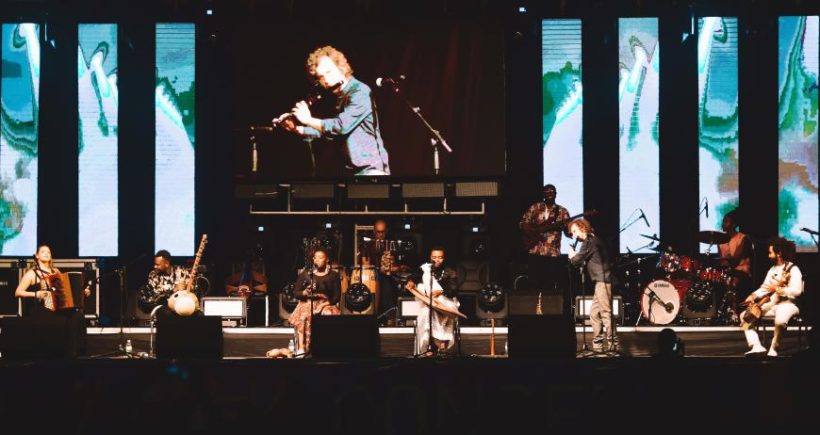CULTURE AND ARTS
The European Commission hosted the first edition of the Africa-Europe Week 2022 last February 14-18 prior to the European Union leaders and African Union member states meeting in Brussels for the 6th European Union-African Union summit on February 17 and 18, 2022. It was said that in the run-up to the summit, the first edition of the Africa-Europe week had been a key moment to bring together young people, civil society and the private sector from Africa and Europe to discuss the aspects of the Africa-EU Partnership that matter to them the most. The program included a series of events prior to the start of the week. The Africa-Europe week aims to strengthen the links that connect people from both continents and included the following events: the 7th EU-Africa Business Forum, Youth Track, Civil Society and Local Authorities Forums, and the Cultural Track.
The official statement indicated that the Cultural Track was intended to stimulate intercultural dialogue and exchanges on cultural relations between Africa and Europe. From 14th to 18th of February 2022, a variety of cultural activities (workshops, debates, film screenings, concerts, etc.) have been an integral part of the Africa-Europe Week and linked closely with culture-related events under the Youth and Civil Society/Local Authorities components, as well as with the EU-Africa Business Forum with its strong creative industries dimension. The Cultural Track was not only an opportunity for African and European artists to showcase their performances and co-productions, but also to debate the cultural dimension of the AU-EU partnership and further develop the future of Africa-Europe cultural relations.
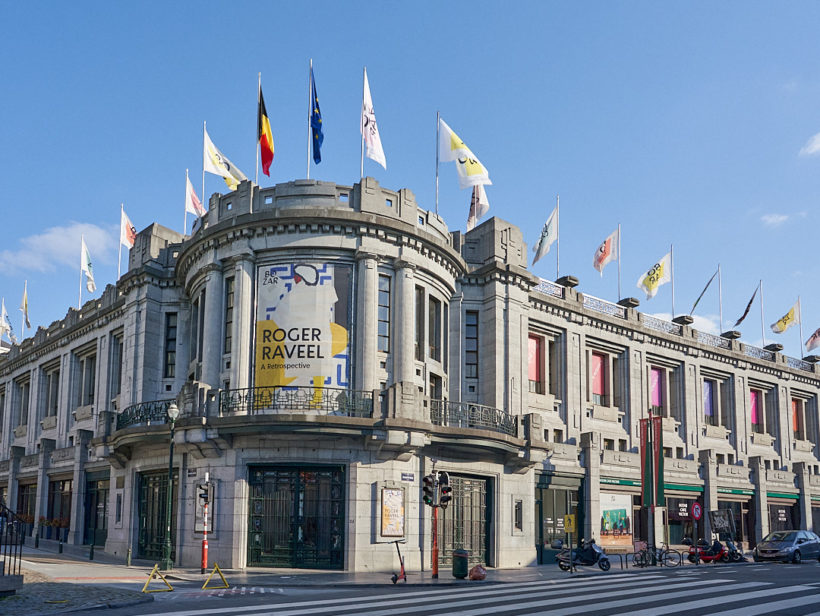
Bozar Brussels, Image by Yannick Sas
The event’s week two of the Cultural Track live-streamed sessions captivated my attention as I was taking part as a Pressenza freelance writer, especially the MAISHA music concert, which was held at the Centre for Fine Arts. A multi-purpose cultural venue called Bozar in Brussels, Belgium motivated me to share some of the exciting information.
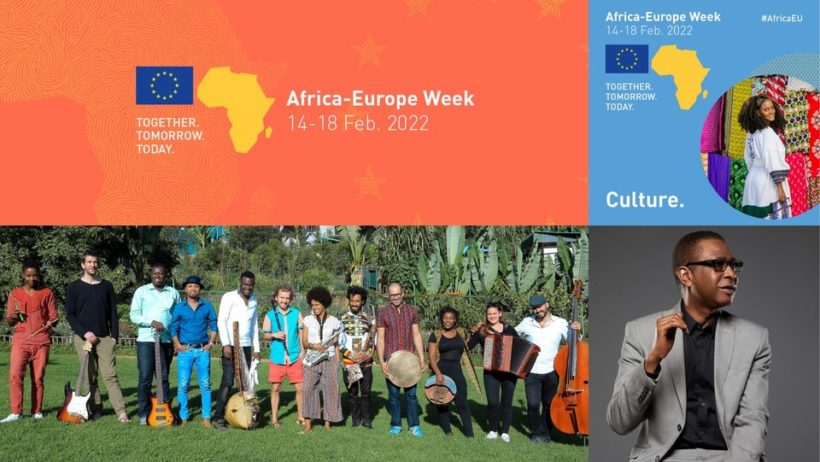
MAISHA (Swahili word for ‘life’), the Afro-European music collective of 12 musicians, full of spontaneity and talent, was created in 2019 in Addis-Ababa and blends traditional and modern instruments: Percussions, Kora, Alto Sax, MasinQo, Accordion, Double Bass, Soprano Sax, Flute, Mbira, Piano, Bass guitar and Drums. MAISHA is a magical fusion of sounds: Jazz, Dub, Electronic, Afrobeat, Hip-Hop, Rock and Reggae.
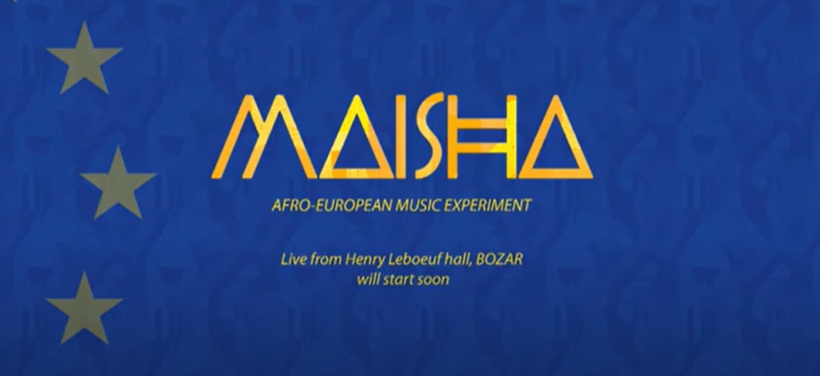
An introduction to the group MAISHA stated that the crew of musicians is an ode to diversity. There are seven Africans– Ethiopia (x2), Mali, Morocco, South Africa, Tanzania & Zimbabwe, four Europeans– France (x2), Italy and Poland, and one artist in between the two continents Hungary/Tanzania.
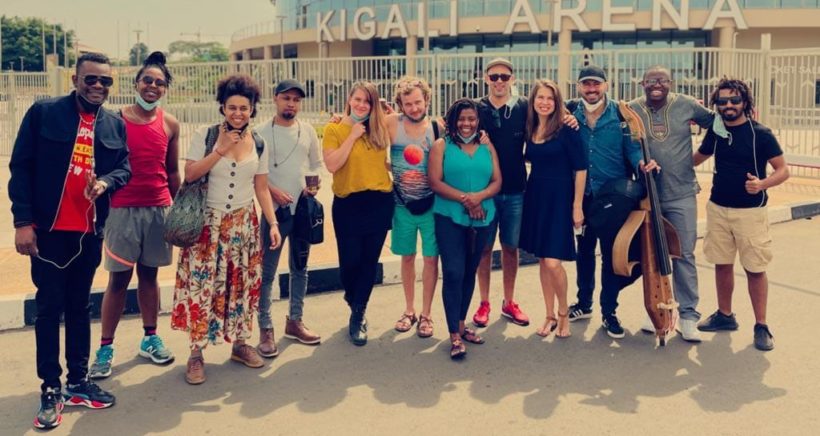
As said on the program website, MAISHA was a testimony of co-creation, the power of art to unite, and a successful example of Africa-Europe cooperation, spreading values of coexistence and peace-building.
The other interesting Cultural Track event was a panel discussion on the theme, “The transformative power of unrestricted funding towards cultural freedom”, organized by the Ministry of Foreign Affairs of the Netherlands and Prince Claus Fund, an Amsterdam based organization working to support artists and cultural practitioners since its founding in 1996. During the panel discussion, the organization highlighted the transformative power of support to emerging cultural talents from the African continent. Through short film clips on three inspiring cultural practitioners, the organization showed how art and culture drive positive social change in local communities. The Prince Claus Found Director Marcus Desando talked to Ugandan Teesa Bahana, Director of 32° East, Egyptian Mohammed Mahdy, documentary photographer, Samwel Japhet, a dancer from Tanzania and Sydelle Willow Smith, photographer/ filmmaker from South Africa.
Director Marcus Desando highlighted during the discussion that the Prince Claus Fund’s mission as an organization is to support and connect and to honor artists and cultural practitioners in areas where cultural expression is under pressure. This is mainly in Africa, Asia, and the Caribbean. “Our vision is to strive for a world where cultural expression is free and valued. Our new strategy is built on the lessons we have learned on how best we can leverage our network and reputation to achieve the biggest possible impact on the people we support and on the societal changes they addressed. We are focused on people. They have to be extraordinary people. They have to have creative ideas, drive change, lead organizations and inspire others. As of 2021, we focused specifically on those individuals who are the driver of societal change. We recognize and support their achievements at crucial stages of their career to boost their professional development, to enable them to create new perspectives, engage with societal changes and help them grow into new role models. Maximizing societal transformation through culture.
The Prince Claus Fund works primarily where socially engaged artists are under pressure, in Africa, Asia, Latin America, the Caribbean, and Eastern Europe. We passionately believe that culture is a basic need.
Additional information & photos obtained from: www.bozar.be and the www.princeclausfund.org


